
Board 4: Climate Actions
Alongside the commitment to Education for Sustainable Development, DCU is also meeting its responsibilities regarding climate change through a range of other initiatives and activities. This includes the work of dedicated research institutes and centres as well as collaborations with Government and other bodies. All disciplines, from science and technology to the humanities and education, are involved as staff play an important role in understanding the challenges, identifying the solutions and taking action on the most pressing social and global justice issues of our time. The initiatives here are just a small sample of the work being done.
Institute for Climate and Society
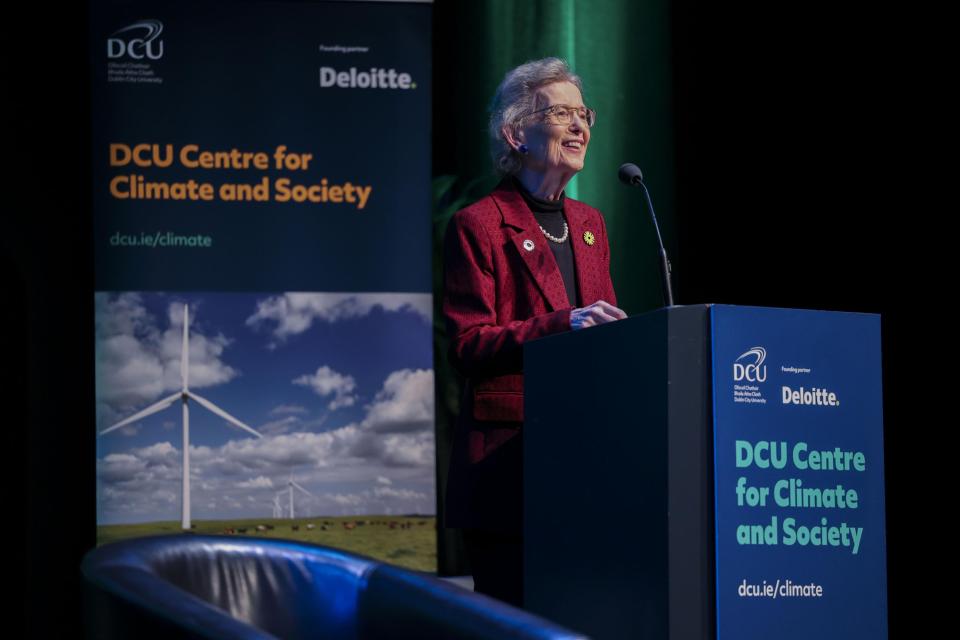
Mary Robinson, 2024 CSS conference
The DCU Institute for Climate and Society is Ireland’s first academic research centre devoted to promoting perspectives on climate change from the social sciences and humanities. The Institute’s research, education, and engagement activities start from the premise that the solutions to climate change are available, and that the blocks to action are to be found in social processes and dynamics.
The Institute for Climate and Society examines how different social arenas such as politics, media, education, business and policy can influence climate action.
Climate Justice Universities Union
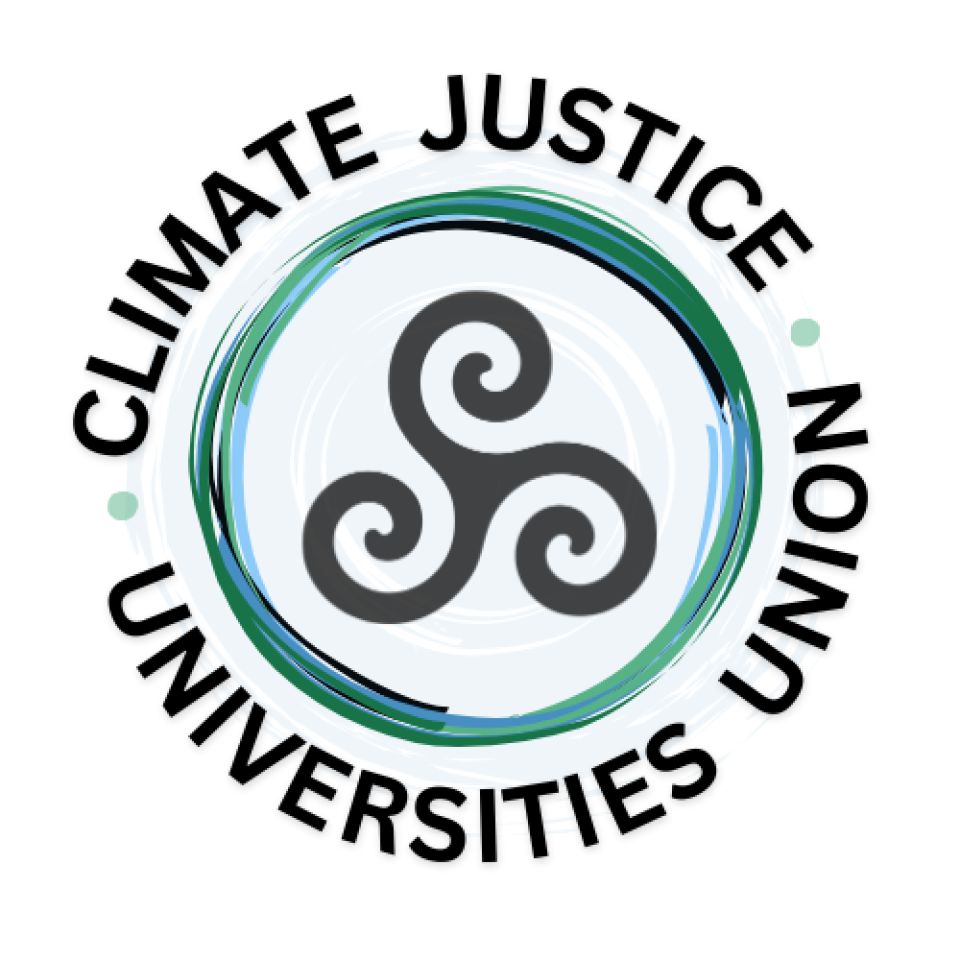
Climate Justice Universities Union Logo
DCU is represented on the Climate Justice Universities Union. This is a collective working to leverage the power of higher education for climate justice. Its membership includes university staff, students, activists and members of the wider community from across the island of Ireland and beyond.
Climate Actions Work

Climate Actions Work
An interdisciplinary team from DCU have developed a training programme around climate change engagement and communications. The training is part of the Climate Actions Work campaign by the Department of Environment, Climate. and Communications. The training is being rolled out to the public service, the voluntary sector, businesses, and community groups across Ireland.
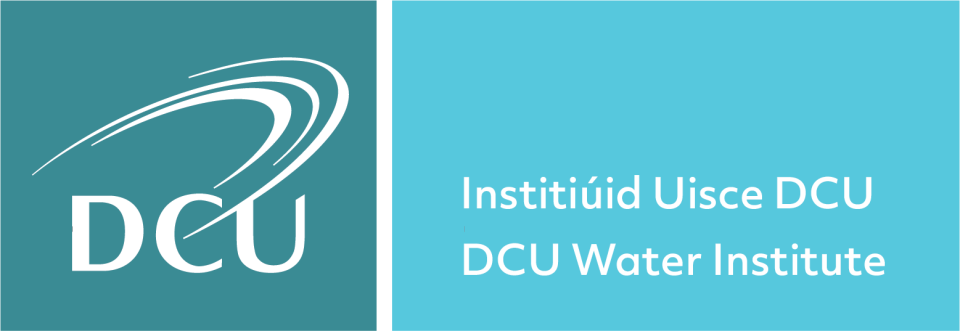
DCU Water Logo
Water availability is becoming increasingly unpredictable worldwide, with climate change intensifying water scarcity and contaminating supplies through extreme weather events causing flooding.
The DCU Water Institute addresses these challenges with a multidisciplinary approach, through initiatives in fields like water monitoring, policy development, pollution management, AI decision support and more. Collaborating with academics, businesses, NGOs, agencies, and the public, the institute develops solutions to tackle global water crises and ensure sustainable water management for the future.
Grain-4-Lab
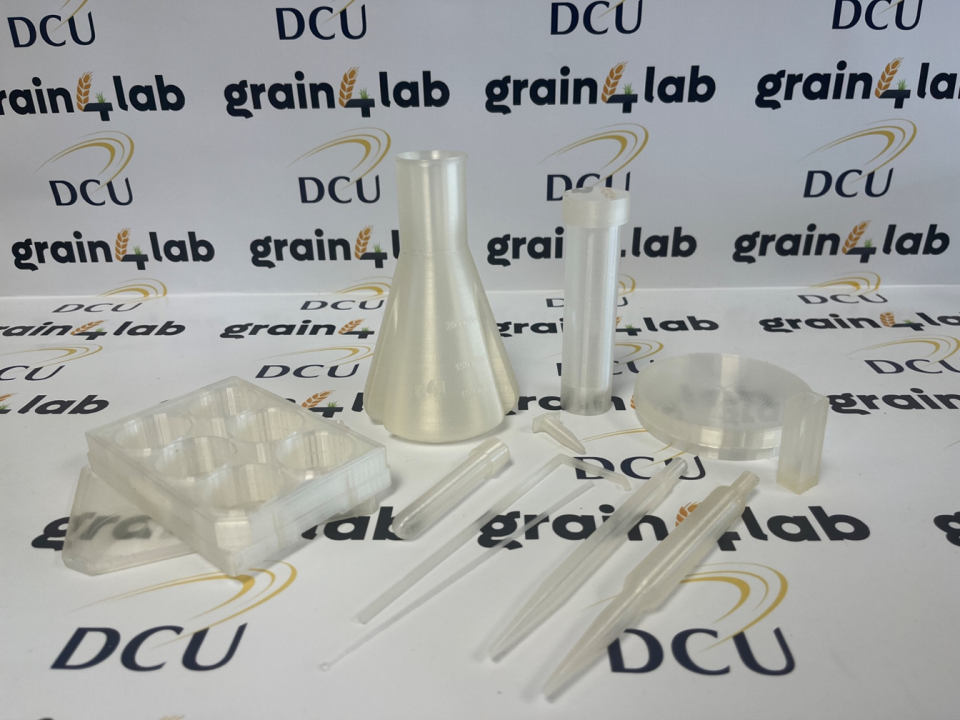
Grain for Lab
The Grain-4-Lab project is focused on reducing our reliance on single-use fossil fuel based plastics. This €2m project, funded by Research Ireland, is taking waste products from the brewing and distilling industry in Ireland and using advanced bioprocessing techniques to convert that waste into a compostable bioplastic. They are turning bioplastics into laboratory consumables like Petri dishes.
Synapses European Teacher Academy
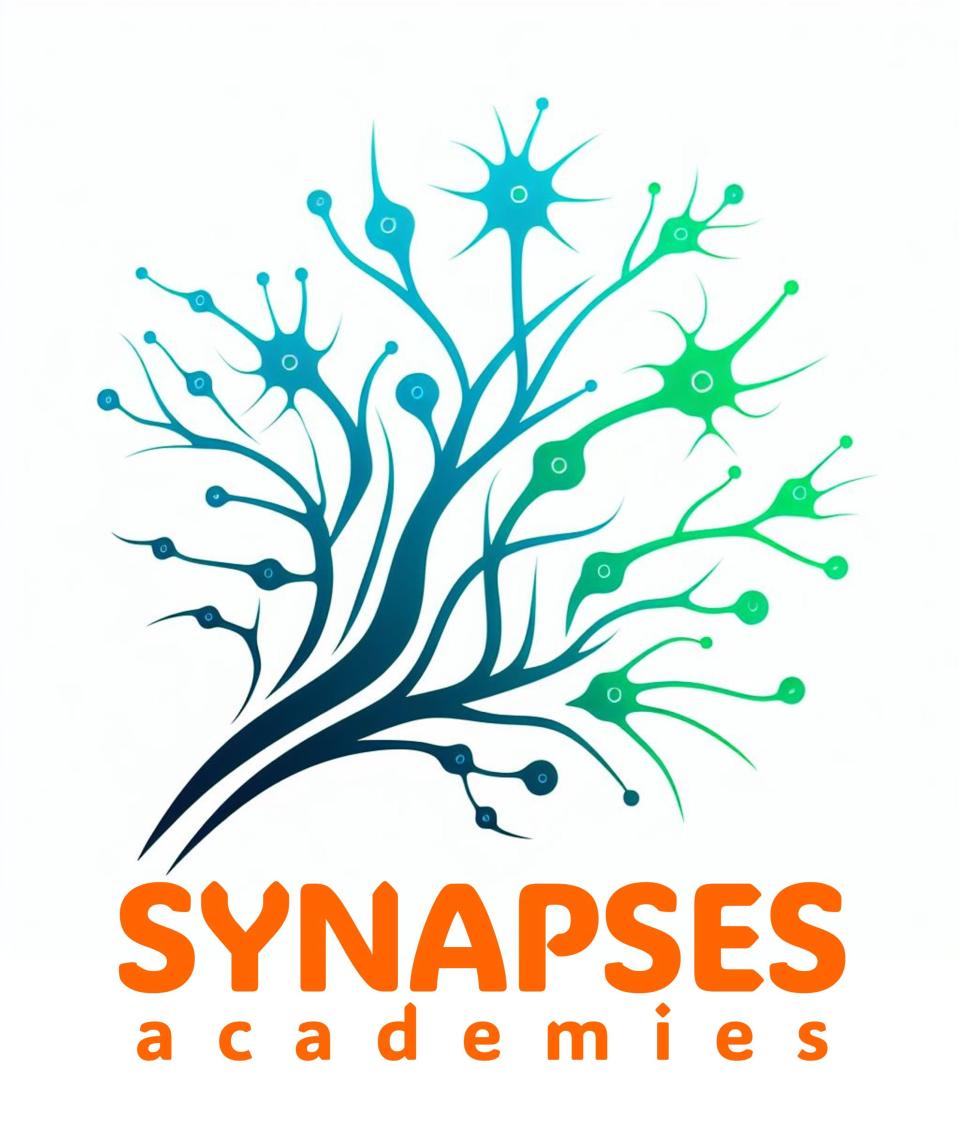
Synapses Academies
SYNAPSES is a European project that supports teachers and head teachers in promoting Sustainability Citizenship in Schools. As one of the Erasmus+ Teacher Academies, it provides workshops and professional development, both in-person and online through webinars and a forum for exchange.
Connecting (Neural) networks together, the SYNAPSES Project recognises that tackling issues of sustainability is something to do with the whole community. Professional development aims at implementing a Whole School Approach, involving all internal stakeholders, as well as external stakeholders and incorporating sustainable thinking in everyday practice rather than looking at sustainability as a project based 'theme'.
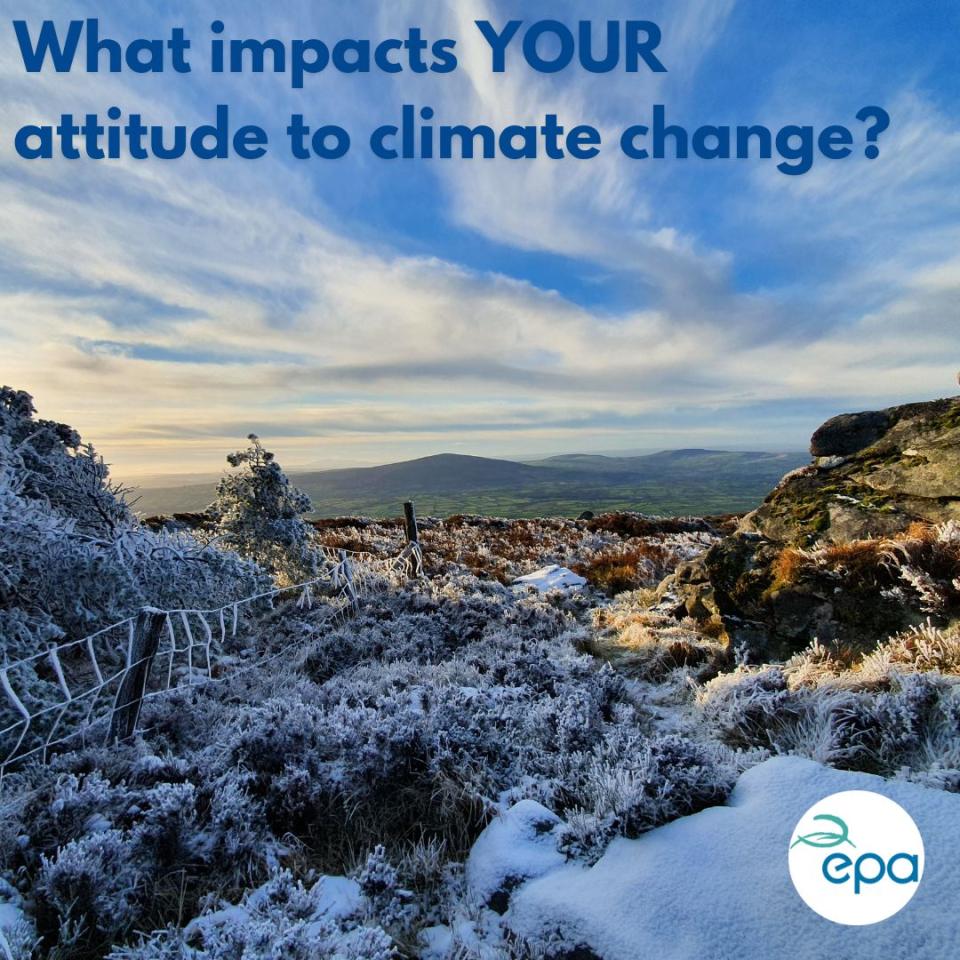
Climate Change Attitudes
In 2024, the Environmental Protection Agency commissioned a review from researchers at the Institute of Education at Dublin City University and Trinity College Dublin, investigating attitudes to climate change using a person-centred framework. This means the individual is thought of as being at the core of a set of interacting systems, from their family and peers up to the wider community and government.
The review explores beliefs about climate change and highlights the key factors that influence our attitudes towards it. At the heart of this exploration is the recognition that human activity significantly influences climate change. This means that individual actions, and the internal processes driving these actions, are critical to addressing environmental challenges.
The review recommends that climate change communication should be tailored to specific demographic groups. Work may need to be completed to better communicate the human-driven nature of climate change to older and male populations.
Young people’s views of climate change
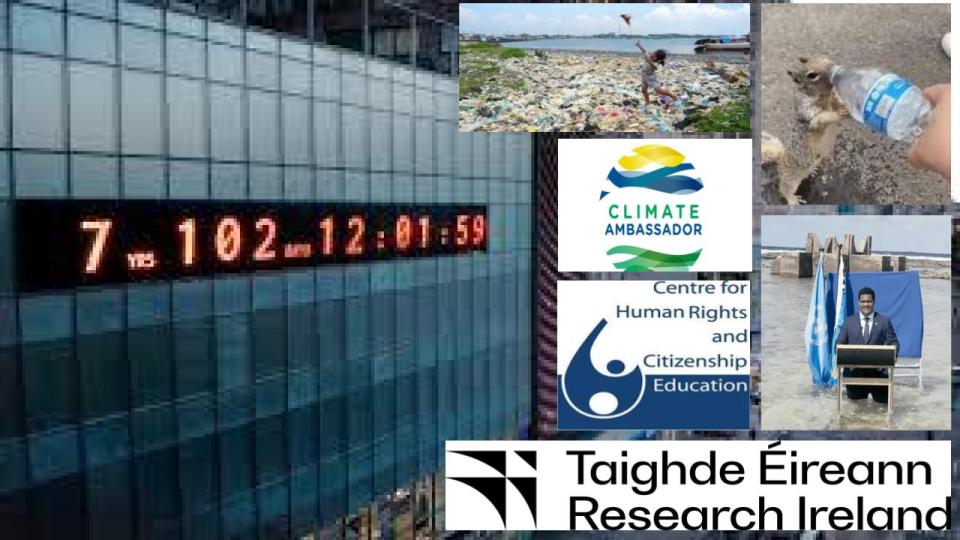
Young people’s views of climate change
DCU’s Centre for Human Rights and Citizenship Education worked with young people from An Taisce’s Climate Ambassadors Programme on The CC-EASE: Climate Change Education for Action, Sustainability, and Empowerment study, which aims to explore young people’s views of climate change and its impact on their lives, and their recommendations for climate change education.
The project focuses primarily on the affective dimensions of climate change education. A youth participative methodology was employed in this study in which young people from An Taisce’s Climate Ambassadors Programme were involved in the design, recruitment, data analysis, and dissemination. A photovoice methodology explored young people’s (aged 15 to 25 years) perspectives in which participants used images that represent climate change for them.
The preliminary findings indicate specific emotive responses to climate change particularly sadness, fear, anger, and worry, with associated coping mechanisms such as repression and humour. In particular, anger was expressed at the intergenerational impacts and the impacts on individuals and communities in the Global South. Participants expressed anger and powerlessness at the role of powerful individuals, corporations and fossil fuel industries in the climate and biodiversity crisis.
Carbon Pricing

Carbon Pricing
Addressing climate change requires international cooperation. Goran Dominioni from DCU’s School of Law and Government has trained government officials from over 50 climate-vulnerable developing countries on how to decarbonize international maritime transport, aiming to strengthen their effective participation in climate negotiations and to level the playing field.
Corruption and the Sustainable Development Goals

Corruption and SDGs
Existing evidence strongly suggests that corruption is associated with and can impact negatively on areas covered by nearly all of the SDGs: greater poverty and food insecurity; economic wellbeing and responsible production; and climate action and biodiversity.
DCU has a strong record on research in this area and is now the 5th best university for the study of corruption in Europe.
Dr Rob Gillanders of DCU and Chandan Jha of Le Moyne College present the most recent developments in corruption research focusing on the SDGs in their forthcoming edited collection Corruption and the Sustainable Development Goals (Routledge).
